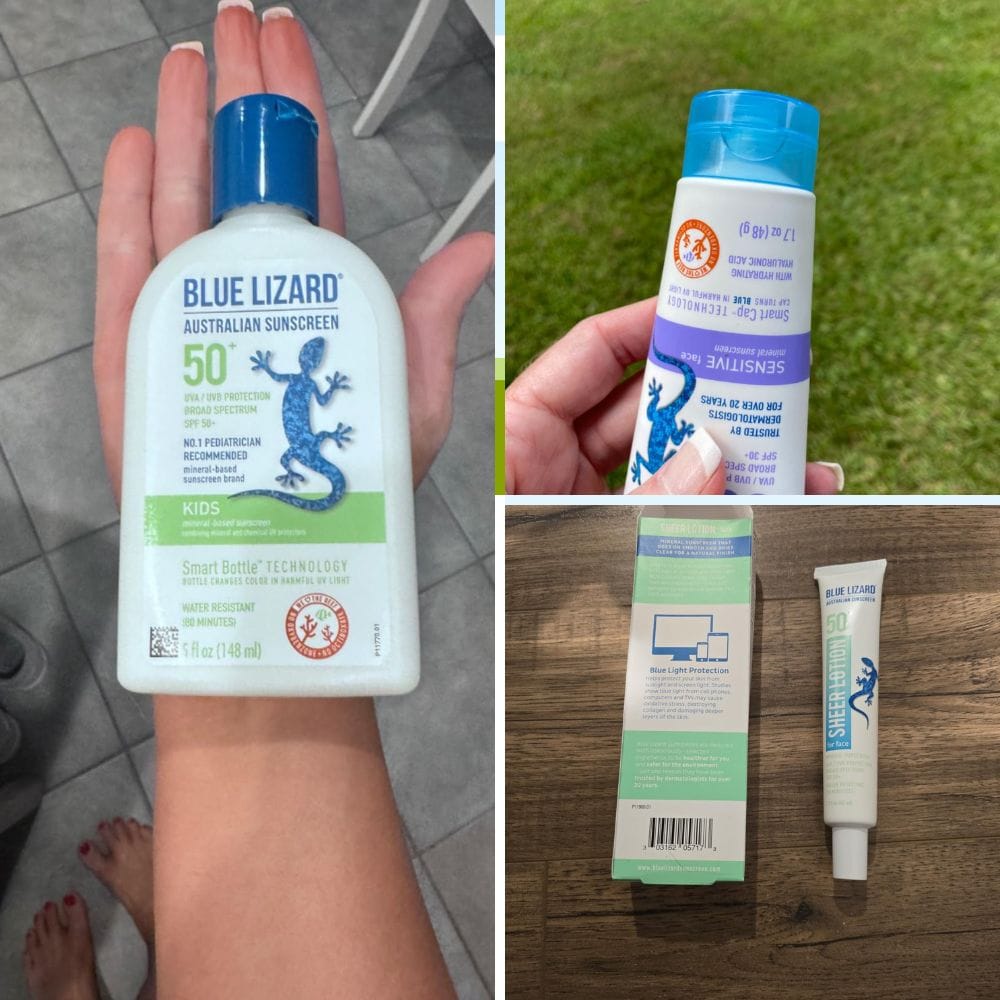Key Takeaways:
- Blue light from screens can damage your skin, making sunscreen a crucial defense.
- Look for sunscreens with specific ingredients like zinc oxide and titanium dioxide.
- Consider your skin type and lifestyle when selecting a sunscreen for blue light protection.
Understanding Blue Light and Its Impact on Skin

Blue light, also known as high-energy visible (HEV) light, is emitted by digital screens, LED lighting, and even the sun. While it helps regulate our sleep-wake cycle, excessive exposure can lead to skin damage. Studies have shown that blue light can penetrate deeper into the skin compared to UV rays, potentially causing premature aging, hyperpigmentation, and weakening of the skin barrier.
The modern lifestyle, with its heavy reliance on digital devices, has increased our exposure to blue light. This has led to a growing concern about its effects on skin health. As a result, the demand for sunscreens that offer blue light protection has surged. Understanding the impact of blue light is the first step in choosing the right sunscreen to shield your skin effectively.
Why Traditional Sunscreens Aren't Enough
Traditional sunscreens are designed to protect against UVA and UVB rays, the primary culprits of sunburn and skin cancer. However, they often fall short in shielding the skin from blue light. This gap in protection is due to the different wavelengths of blue light, which require specific ingredients to block effectively.
While some sunscreens claim to offer broad-spectrum protection, not all are equipped to handle blue light. It's essential to scrutinize the ingredient list and look for those specifically formulated to combat blue light exposure. This ensures comprehensive protection for your skin in today's digital age.
Key Ingredients for Blue Light Protection

When selecting a sunscreen for blue light protection, focus on ingredients like zinc oxide and titanium dioxide. These physical blockers sit on the skin's surface, reflecting and scattering blue light away. Additionally, antioxidants such as vitamin C and E can neutralize free radicals generated by blue light exposure, offering an extra layer of defense.
Another ingredient to consider is iron oxide, which has been shown to provide protection against visible light, including blue light. By incorporating these ingredients into your skincare routine, you can effectively shield your skin from the harmful effects of blue light, maintaining a healthy and youthful complexion.
The Role of Antioxidants in Sunscreens
Antioxidants play a crucial role in sunscreens designed for blue light protection. They help combat oxidative stress caused by blue light exposure, which can lead to skin damage and aging. Ingredients like niacinamide, green tea extract, and resveratrol are powerful antioxidants that can enhance your sunscreen's protective capabilities.
Incorporating antioxidants into your sunscreen not only provides immediate protection but also supports long-term skin health. By neutralizing free radicals, these ingredients help maintain the skin's integrity and prevent the breakdown of collagen and elastin, keeping your skin firm and resilient.
Choosing the Right Sunscreen for Your Skin Type

Selecting the best sunscreen for blue light protection involves considering your skin type. For oily or acne-prone skin, opt for a lightweight, non-comedogenic formula that won't clog pores. Look for sunscreens labeled as "oil-free" or "matte finish" to keep your skin shine-free throughout the day.
For dry or sensitive skin, choose a sunscreen with hydrating ingredients like hyaluronic acid or glycerin. These will help maintain moisture levels while providing blue light protection. Additionally, fragrance-free and hypoallergenic options are ideal for sensitive skin, minimizing the risk of irritation.
Lifestyle Considerations in Sunscreen Selection
Your lifestyle plays a significant role in determining the best sunscreen for blue light protection. If you spend long hours in front of screens, consider a sunscreen with a higher concentration of blue light-blocking ingredients. For those who are frequently outdoors, a broad-spectrum sunscreen with added blue light protection is essential.
For individuals who wear makeup, look for sunscreens that can be easily layered under cosmetics. Tinted sunscreens with iron oxide can also provide additional protection against blue light while offering a natural-looking finish. By aligning your sunscreen choice with your daily activities, you can ensure optimal skin protection.
The Importance of Reapplication

Reapplying sunscreen is crucial for maintaining effective blue light protection throughout the day. Even the best sunscreen can lose its efficacy after a few hours, especially if you're exposed to blue light from screens or sunlight. Make it a habit to reapply every two hours, or more frequently if you're sweating or wiping your face.
Consider using a sunscreen spray or powder for convenient reapplication, especially when you're on the go. These formats allow you to refresh your protection without disturbing your makeup or skincare routine. Consistent reapplication ensures your skin remains shielded from blue light damage.
Evaluating Sunscreen Claims and Labels
When shopping for sunscreen, it's important to evaluate the claims and labels carefully. Look for terms like "blue light protection," "HEV light defense," or "digital screen protection" to ensure the product is specifically formulated for blue light. Be wary of vague claims and always check the ingredient list for key blue light-blocking components.
Additionally, consider the sunscreen's SPF rating. While SPF primarily measures UVB protection, a higher SPF can indicate a more robust formula overall. However, remember that SPF alone doesn't guarantee blue light protection, so prioritize products with specific blue light defense claims.
Real-Life Examples of Effective Sunscreens

Several brands have developed sunscreens specifically for blue light protection. For instance, Supergoop! Unseen Sunscreen offers a lightweight, invisible formula with blue light defense, making it a popular choice for daily wear. Another example is La Roche-Posay Anthelios, which combines broad-spectrum UV protection with blue light-blocking ingredients.
These products demonstrate the effectiveness of combining traditional sun protection with modern blue light defense. By choosing sunscreens from reputable brands with proven track records, you can confidently protect your skin from the harmful effects of blue light exposure.
The Future of Sunscreen and Blue Light Protection
As awareness of blue light's impact on skin health grows, the sunscreen industry is evolving to meet consumer needs. Innovations in formulation and technology are leading to more effective and versatile products. Expect to see an increase in sunscreens that offer comprehensive protection against UV, blue light, and environmental pollutants.
The future of sunscreen lies in multi-functional products that cater to the demands of modern life. By staying informed about the latest advancements, you can make educated choices that safeguard your skin against the challenges of today's digital world.


Can blue light really damage my skin?
Yes, blue light can penetrate deeper into the skin than UV rays, potentially causing premature aging, hyperpigmentation, and weakening of the skin barrier.
What ingredients should I look for in a sunscreen for blue light protection?
Look for ingredients like zinc oxide, titanium dioxide, iron oxide, and antioxidants such as vitamins C and E to effectively block and neutralize blue light.
How often should I reapply sunscreen for blue light protection?
Reapply sunscreen every two hours, or more frequently if you're exposed to screens or sunlight, to maintain effective protection against blue light damage.

Choosing the right sunscreen for blue light protection involves understanding the unique challenges posed by digital screens and sunlight. By focusing on key ingredients, considering your skin type and lifestyle, and staying informed about product claims, you can effectively shield your skin from blue light damage. As the sunscreen industry continues to innovate, staying updated on the latest developments will ensure your skin remains protected and healthy.











